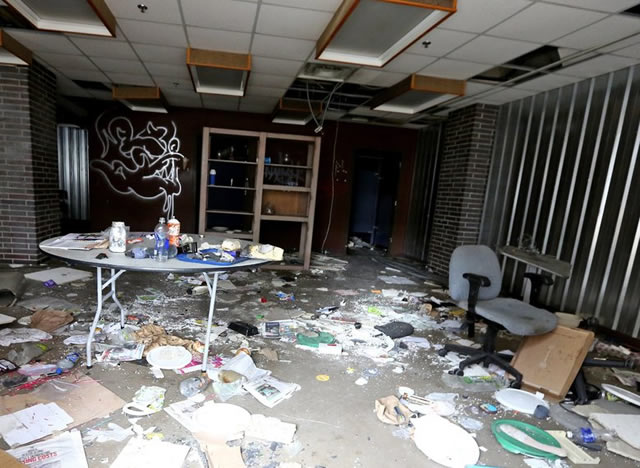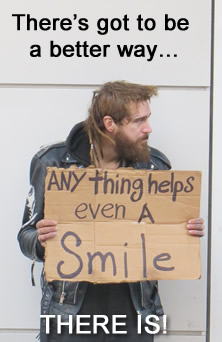A recent story from the Seattle Times illustrates the mess a city can get into when it tries to be nice and doesn’t ask too many questions. Take homelessness for example. In spite of all our self-guilting, Seattle has a braggable record when it comes to helping homeless people. There are thousands of nightly shelter beds here, and tens of thousands of low-income and subsidized housing units. And yet, as we see in this story, Seattle still has a problem with street people. The City is on the hook for clearing and/or arresting the squatters. But note that it’s the building owner, not the City, who must pay for the damage to the building and premises. Beyond that, the owner could be fined (up to $1,000 a day) for failing to keep people out of the building.
Article: Former Seattle Times Building Now Home to Thieves and Squatters

Squatter damage at the old Seattle Times building. (Photo: Seattle Times)
The owner couldn’t be reached for comment Wednesday. But Eric Guisasola of CG Construction, whom the owner hired to secure the building, said he and co-workers have been trying to secure it unsuccessfully for about a month. “It’s a nightmare,” he said. “They throw things at us.”
Guisasola said there are actually two separate groups of people who were in the building: the homeless and professional thieves.
Curiously, the problem is much worse in Seattle than it is in smaller cities like, say, Spokane. Why should that be? Are the homeless of Spokane coming here on purpose? Is Spokane that much worse to be homeless in? Or is Seattle perhaps doing something that attracts homeless folks?
Unfortunately, we don’t know the answers to these questions, because city officials in Seattle, from the mayor on down, haven’t asked. For all the public hand-wringing and all money the city spends on low-income housing and shelter programs (around $100 million per year) Seattle has not done a single study to see whether we’re doing more or less than our share relative to smaller communities around the country. Nor do we know if Seattle government policies might actually be enticing people to give up their homes in other places and take their chances on the street, here.
Meanwhile, the throng of homeless on our streets grows, and when they become desperate enough, they start taking other people’s stuff. If the situation continues to decay, it could lead to a harsh government crackdown or even vigilante actions.
Don’t scoff. It’s happened before. For all the lofty talk about social justice you’ll find that when it comes to property rights, even the beautiful people can get ugly.






















And your solution is?????? Allow DSHS and government agencies perpetuate dependency by ensuring the only assistance goes to people whom will forever be dependent on government services. Brief and One Time?????? WTF really??? Brief and one time for WHO??????
If your not mentally or physically disabled you better go get a tent cause DSHS, The City of Seattle and King County wont do shit for you.
Of course you can always feign depression and say your hearing voices, but hey don’t hate the player, hate the game.
We need to INVEST in people who can return to work and contribute back into society and the tax roles instead of making generations of dependency.
Creedo, I agree with you that DSHS is not doing enough. At the same time, I understand why that is. They’re clearly overworked.
What I would like to see are more community-based solutions, where individuals and families step forward and work with homeless people on a one-to-one basis, mentoring them, helping them fill out applications, holding them responsible. That’s a tall order, though, because currently our society is not geared up to encourage (or even tolerate) those kinds of relationships. So instead, we default back to the depend-on-government thing, as you point out.